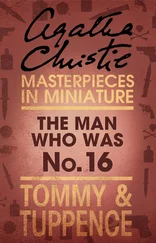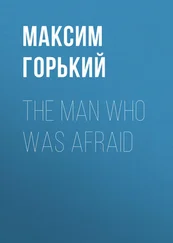The Colonel sprang out of the car with an intolerant exclamation.
“Gentlemen,” he cried, “the thing is incredible. It must be a practical joke. If you knew Renard as I do it’s like calling Queen Victoria a dynamiter. If you had got the man’s character into your head ”
“Dr. Bull,” said Syme sardonically, “has at least got it into his hat.”
“I tell you it can’t be!” cried the Colonel, stamping.
“Renard shall explain it. He shall explain it to me,” and he strode forward.
“Don’t be in such a hurry,” drawled the smoker. “He will very soon explain it to all of us.”
But the impatient Colonel was already out of earshot, advancing towards the advancing enemy. The excited Dr. Renard lifted his pistol again, but perceiving his opponent, hesitated, and the Colonel came face to face with him with frantic gestures of remonstrance.
“It is no good,” said Syme. “He will never get anything out of that old heathen. I vote we drive bang through the thick of them, bang as the bullets went through Bull’s hat. We may all be killed, but we must kill a tidy number of them.”
“I won’t ’ave it,” said Dr. Bull, growing more vulgar in the sincerity of his virtue. “The poor chaps may be making a mistake. Give the Colonel a chance.”
“Shall we go back, then?” asked the Professor.
“No,” said Ratcliffe in a cold voice, “the street behind us is held too. In fact, I seem to see there another friend of yours, Syme.”
Syme spun round smartly, and stared backwards at the track which they had travelled. He saw an irregular body of horsemen gathering and galloping towards them in the gloom. He saw above the foremost saddle the silver gleam of a sword, and then as it grew nearer the silver gleam of an old man’s hair. The next moment, with shattering violence, he had swung the motor round and sent it dashing down the steep side street to the sea, like a man that desired only to die.
“What the devil is up?” cried the Professor, seizing his arm.
“The morning star has fallen!” said Syme, as his own car went down the darkness like a falling star.
The others did not understand his words, but when they looked back at the street above they saw the hostile cavalry coming round the corner and down the slopes after them; and foremost of all rode the good innkeeper, flushed with the fiery innocence of the evening light.
“The world is insane!” said the Professor, and buried his face in his hands.
“No,” said Dr. Bull in adamantine humility, “it is I.”
“What are we going to do?” asked the Professor.
“At this moment,” said Syme, with a scientific detachment, “I think we are going to smash into a lamppost.”
The next instant the automobile had come with a catastrophic jar against an iron object. The instant after that four men had crawled out from under a chaos of metal, and a tall lean lamp-post that had stood up straight on the edge of the marine parade stood out, bent and twisted, like the branch of a broken tree.
“Well, we smashed something,” said the Professor, with a faint smile. “That’s some comfort.”
“You’re becoming an anarchist,” said Syme, dusting his clothes with his instinct of daintiness.
“Everyone is,” said Ratcliffe.
As they spoke, the white-haired horseman and his followers came thundering from above, and almost at the same moment a dark string of men ran shouting along the sea-front. Syme snatched a sword, and took it in his teeth; he stuck two others under his arm-pits, took a fourth in his left hand and the lantern in his right, and leapt off the high parade on to the beach below.
The others leapt after him, with a common acceptance of such decisive action, leaving the debris and the gathering mob above them.
“We have one more chance,” said Syme, taking the steel out of his mouth. “Whatever all this pandemonium means, I suppose the police station will help us. We can’t get there, for they hold the way. But there’s a pier or breakwater runs out into the sea just here, which we could defend longer than anything else, like Horatius and his bridge. We must defend it till the Gendarmerie turn out. Keep after me.”
They followed him as he went crunching down the beach, and in a second or two their boots broke not on the sea gravel, but on broad, flat stones. They marched down a long, low jetty, running out in one arm into the dim, boiling sea, and when they came to the end of it they felt that they had come to the end of their story. They turned and faced the town.
That town was transfigured with uproar. All along the high parade from which they had just descended was a dark and roaring stream of humanity, with tossing arms and fiery faces, groping and glaring towards them. The long dark line was dotted with torches and lanterns; but even where no flame lit up a furious face, they could see in the farthest figure, in the most shadowy gesture, an organised hate. It was clear that they were the accursed of all men, and they knew not why.
Two or three men, looking little and black like monkeys, leapt over the edge as they had done and dropped on to the beach. These came ploughing down the deep sand, shouting horribly, and strove to wade into the sea at random. The example was followed, and the whole black mass of men began to run and drip over the edge like black treacle.
Foremost among the men on the beach Syme saw the peasant who had driven their cart. He splashed into the surf on a huge cart-horse, and shook his axe at them.
“The peasant!” cried Syme. “They have not risen since the Middle Ages.”
“Even if the police do come now,” said the Professor mournfully, “they can do nothing with this mob.”
“Nonsence!” said Bull desperately; “there must be some people left in the town who are human.”
“No,” said the hopeless Inspector, “the human being will soon be extinct. We are the last of mankind.”
“It may be,” said the Professor absently. Then he added in his dreamy voice, “What is all that at the end of the ‘Dunciad’?
Nor public flame; nor private, dares to shine;
Nor human light is left, nor glimpse divine!
Lo! thy dread Empire, Chaos, is restored;
Light dies before thine uncreating word:
Thy hand, great Anarch, lets the curtain fall;
And universal darkness buries all.”
“Stop!” cried Bull suddenly, “the gendarmes are out.”
The low lights of the police station were indeed blotted and broken with hurrying figures, and they heard through the darkness the clash and jingle of a disciplined cavalry.
“They are charging the mob!” cried Bull in ecstacy or alarm.
“No,” said Syme, “they are formed along the parade.”
“They have unslung their carbines,” cried Bull dancing with excitement.
“Yes,” said Ratcliffe, “and they are going to fire on us.”
As he spoke there came a long crackle of musketry, and bullets seemed to hop like hailstones on the stones in front of them.
“The gendarmes have joined them!” cried the Professor, and struck his forehead.
“I am in the padded cell,” said Bull solidly.
There was a long silence, and then Ratcliffe said, looking out over the swollen sea, all a sort of grey purple
“What does it matter who is mad or who is sane? We shall all be dead soon.”
Syme turned to him and said
“You are quite hopeless, then?”
Mr. Ratcliffe kept a stony silence; then at last he said quietly
“No; oddly enough I am not quite hopeless. There is one insane little hope that I cannot get out of my mind. The power of this whole planet is against us, yet I cannot help wondering whether this one silly little hope is hopeless yet.”
“In what or whom is your hope?” asked Syme with curiosity.
Читать дальше








